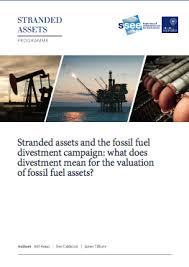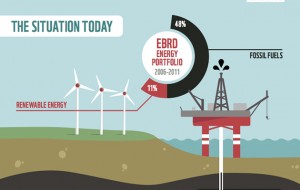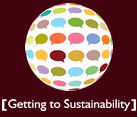 8 October 2013: Commenting on a new report on divesting from fossil fuels, published by the University of Oxford’s Smith School of Enterprise and the Environment, WWF said that the research provided further evidence of the real risks to fossil fuel investments.
8 October 2013: Commenting on a new report on divesting from fossil fuels, published by the University of Oxford’s Smith School of Enterprise and the Environment, WWF said that the research provided further evidence of the real risks to fossil fuel investments.
The independent research finds that the valuation of high-carbon assets could be significantly impaired over time because of the indirect effects of the divestment movement. It says that investors would be running a significant risk if they ignore both the potential impact of this growing movement and the increasing concern around stranded assets and the ‘carbon bubble’.
David Nussbaum, Chief Executive at WWF-UK, said: “On the back of the IPCC giving us the clearest signal yet of the threats posed by a changing climate, and highlighting the need to act decisively to address the problem, it’s clear that we must consider the risks to businesses and investors posed by investments in fossil fuels.
“Prudent investors want to be ahead of pack, not following the herd, so they will be preparing for a world where we leave fossil fuels in the ground – avoiding assets that cannot be realised safely in a carbon-constrained world. If they do nothing, the risk is that policy changes and pressures such as the divestment campaign will mean investments could depreciate in value and might become stranded.
“It’s not as if we don’t have solutions. We need to switch from investing in damaging fossil fuels and increase intelligent investment in sustainable renewable energy. Renewable energy isn’t just the best choice, it’s ultimately our only option, because the way the world produces and uses energy today is not sustainable, and has to change.”
WWF is calling on investors and financiers around the world to end their support for coal and to increase investments in sustainable, renewable energy, including energy access for the poor. For example, WWF has lobbied the European Bank for Reconstruction and Development (EBDR) to end coal financing.

Image courtesy of WWF – See more at: http://tcktcktck.org/2013/11/join-twitter-storm-tell-ebrd-end-coal-financing/58998#sthash.RaPgqPxp.dpuf
More information from WWF here.
Here you can download the report from Oxford University entitled (7.3 meg): Stranded assets and the fossil fuel divestment campaign: what does divestment mean for the valuation of fossil fuel assets?
Related news on fossil fuel divestment and carbon bubbles
Bloomberg has launched a new carbon bubble risk analysis report. Subscribe here.
Find out why fossil fuel divestment is gaining momentum at The Guardian story by Bill McKibben here.
Australians can participate in fossil fuel divestment (like changing banks and superannuation funds) – further information here http://gofossilfree.org/australia/
What are stranded assets?
‘Stranded assets’ are assets that have suffered from unanticipated or premature write-downs, devaluations or conversion to liabilities.
Research from Carbon Tracker and the Grantham Research Institute on Climate Change and the Environment at LSE shows that that fossil fuel reserves already far exceed the carbon budget to avoid global warming of 2°C, but in spite of this, spent $674billion last year to find and develop new potentially stranded assets: http://www.carbontracker.org/wastedcapital
Read more about the carbon bubble and what lead thinkers think by visiting this story from The Guardian.
What is a carbon bubble?
The term “carbon bubble” was popularized by the Carbon Tracker Initiative. It published key reports in July 2011 and April 2013:
- Unburnable Carbon – Are the world’s financial markets carrying a carbon bubble?
- Unburnable carbon 2013: Wasted capital and stranded assets
About the Oxford University Stranded Assets Programme
The Stranded Assets Programme works to understand the risks that result in stranded assets and how these change over time. They create the tools and frameworks needed for investors, businesses, regulators and policy makers to address these challenges. Find out more here.
